Reference materials:
These materials are not intended for diagnostic or treatment purposes. Always consult with your family veterinarian about your pet’s health. Your veterinarian may make a referral to an Oregon Veterinary Referral Associates specialist regarding specific medical questions. These materials are for reference only.
Preparing for surgery or a procedure
Here are answers to some of the most commonly asked questions about steps you can take prior to your pet undergoing a procedure with us, including care for your pet prior to the day of its surgery, admittance procedures, what happens after you leave your pet with us and when you can expect to pick up your pet.
Cranial cruciate injury in a dog
A torn cranial cruciate ligament in a pet is akin to a person rupturing an anterior cruciate ligament in the knee – the ligament is critical to providing stability in the joint. Unfortunately, the injury occurs nearly as often in animals as it does for people. In general, dogs with surgery to repair the ligament are likely to have less pain, better function, and greater strength over the long term than dogs that do not have surgery. Click here for rehab instructions.
Canine total hip replacement
We replace both the ball and socket of a hip joint with prosthetic implants using materials that are also used in human hip replacements, but made specifically for dogs. Many factors must be considered before your pet is determined to be a good total hip replacement candidate.
Caring for a pet with cancer
Almost all dogs and cats with cancer can be helped. The first step begins with separating facts from myths about the disease, then collaborating with your veterinary health care team to help your best friend through the diagnosis and treatment. Seeking the most appropriate care will allow you to spend as much time as possible with your companion.
Chemotherapy: What to expect
Chemotherapy for pets is generally different from that for human cancer patients. Although practically all anticancer drugs have side effects, most people are pleasantly surprised at how well their pet seems to feel while undergoing chemotherapy.
Paralyzed pet nursing care
If your pet is recovering from a serious back injury, you have an important responsibility for care during the convalescent period. Expect to confine your pet to a small area for four to six weeks. Daily cleaning is likely to be required, along with regular range-of-motion exercises for your pet’s legs and other special care. When handling your pet, be careful not to bend its back.
Nursing Care After a Spinal Cord Injury
Your pet is recovering from a serious spinal cord injury. It is important to provide good nursing care during the recovery period. Please remember that despite the pain medications prescribed, your pet might have pain and be guarded during certain activities and may act unexpectedly. If you have any concerns, please contact our office for advice on safe handling. Want more detail? Click here nursing a spinal cord injury instructions.
Laryngeal Paralysis and Polyneuropathy
Laryngeal Paralysis is the degeneration of nerves and muscles that move the laryngeal cartilages and the vocal cords in the throat. These cartilages control airflow into and out of the trachea (windpipe) during breathing. Normal laryngeal function protects the airway during swallowing by closing the opening to the trachea and preventing aspiration of food or water. In laryngeal paralysis, respiratory obstruction occurs because the cartilages remain in a central position causing airway resistance, instead of opening up the airway during inspiration.
With polyneuropathy, the nerves responsible for laryngeal movement arise from one of the body’s major nerves Clinical investigations have shown that other nerves are also affected in some dogs; leading to clinical signs such as poor swallowing function, slowly progressing hind-end weakness, and loss of hind leg muscle mass. Want more detail? Click here to learn more Laryngeal Paralysis and Polyneuropathy.

